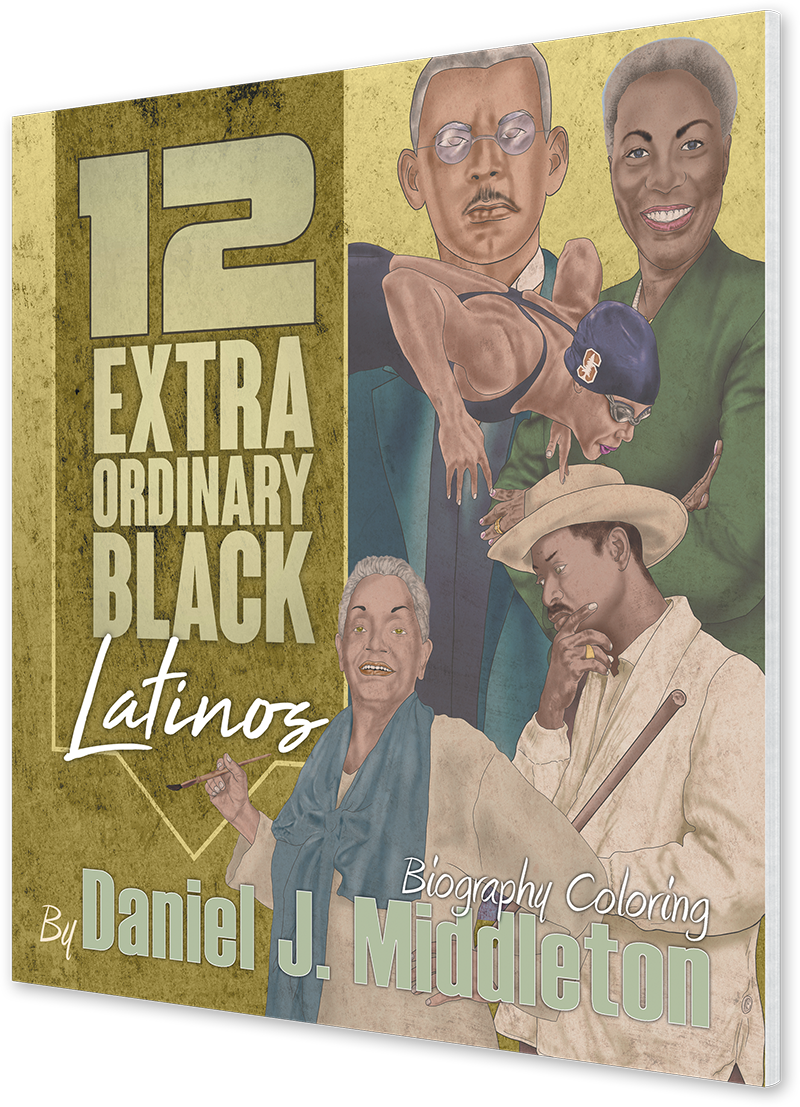José Celso Barbosa
Father of the Statehood for Puerto Rico Movement
Led by Colonel Theodore Roosevelt, the 1st Volunteer Cavalry charge up San Juan Hill during the Spanish American War of 1898. In the foreground, a young José Celso Barbosa poses for a portrait years before the battle that rages behind him.
As a University of Michigan graduate, José Celso Barbosa became the first Puerto Rican to earn a medical degree in the United States. Aside from being an influential physician and sociologist, Barbosa was also a leading politician. Supporting Baldorioty de Castro and his Autonomous Party inspired Barbosa to found the Republican Party of Puerto Rico in 1899, which advocated statehood for Puerto Rico. From 1900 to 1917, Barbosa also served as a member of the new Executive Cabinet. For the next four years, he was a Puerto Rican Senator.
José Celso Barbosa was born in the city of Bayamón, Puerto Rico, on July 27, 1857. His parents were of African and European descent. Barbosa was, therefore, the only black student to attend the esteemed Jesuit seminary during his primary and secondary school years. He later paid for his college tuition by offering private tutoring to students.
Portrait of José Celso Barbosa. Illustrated by Daniel J. Middleton.
Barbosa immigrated to the U.S. in 1875 and lived in New York City. Within a year, he learned to speak English and was initially intent on studying law. After falling ill with pneumonia, he switched his focus to medicine on the recommendation of his doctor. Barbosa attempted to enroll at the College of Physicians and Surgeons (later Columbia University Medical School) but faced rejection due to current racist policies. He turned to the University of Michigan instead and began his medical studies in 1877.
After graduating in 1880, Barbosa returned to Puerto Rico and spent a few decades serving as a medical doctor in Bayamón, his hometown. Barbosa later wanted to open a private practice, but the Spanish colonial government, which controlled Puerto Rico, refused to recognize his U.S. medical degree. The American consulate stepped in to aid him in that effort. With his private practice established, Barbosa created a basic health insurance system paid for by local employers.
Early twentieth-century view of the harbor at San Juan, Puerto Rico (then called Porto Rico). Photo courtesy of the Library of Congress.
It was during the Spanish colonial period that Barbosa briefly supported the Autonomous Party. During the Spanish-American War, Barbosa and other doctors left Bayamón to work for the Red Cross in the capital of San Juan. There they treated Puerto Rican and Spanish Soldiers alike. They traveled as cannons fired around them, which later prompted the Spanish government to recommend them for an award: the Cruz de la Orden del Mérito Naval (Cross of the Order of Naval Merit) for their show of bravery.
The war resulted in Puerto Rico becoming a U.S. territory. Under this new structure, Barbosa and his supporters founded the first political party on July 4, 1899. That established him as the father of the Statehood for Puerto Rico movement. The U.S. freed the island from the grip of Spanish Colonialism, but Barbosa addressed the American liberators by stating:
"We want and we ask for equality. Not colonial control or protection. We support the same ideal of the American Union with equality in rights and in duties.”
On September 21, 1921, José Celso Barbosa died in San Juan. His house in Bayamón became a museum, with his accolades, books, and other items on permanent display. Puerto Rico also declared July 27—his day of birth—a national holiday and named the Bayamón post office after him.
You may also be interested in:

This article appears in 12 Extraordinary Black Latinos.
Available from Amazon.com, BN.com, and other retailers.





Daniel Hale Williams was a pioneer in the medical field. He opened the first black-owned hospital in the United States and, in 1893, performed one of the first successful open-heart surgeries in the world.